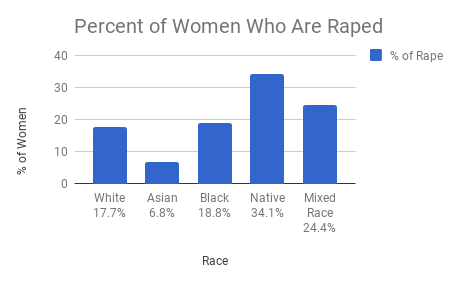Introduction
Equality is one of the most important phenomena of modern society, following the concepts of which is crucial for its successful development. One of the groups that are subject to special discrimination is Native American women. This is because they may have limited access to medical services and work and, as a consequence, experience a generally negative attitude. Thus, this work aims at studying how negative attitudes, abuse, and discrimination affect the experience of Native Americans on reservation minority women.
The Roots of the Problem of Native Americans
One of the problems is the fact that the problem of negative attitudes and intolerance, and inequality toward Native women are very rarely discussed in scientific literature. Hence, during the research for this academic paper, a limited number of articles were found that specifically examined the female population. Further, the topics were devoted to the general difficulties faced by representatives of the native population.
It is worth noting that the problem of discrimination and unfairness toward native women has quite deep roots in the history. Hence, this has been happening since the time when the indigenous people were used as slaves. Moreover, many representatives of this group were subjected to the opposition, and many conquerors made attempts to recruit people in this territory. Thus, this trend is reflected in the modern world and society. Findling et al. (2019) showed that “Native Americans experience pervasive patterns of discrimination across many areas of life in the United States” (p. 1439). This is reflected in many areas of the lives of people who must face problems.
The Issue Native Women Face in Modern Society
Regarding native women, this group is experiencing an even greater number of issues. This is because, in addition to restrictions in health care and work, they are subjected to psychological and physical violence and various kinds of bullying. Thus, Brewer (2021) underlines that “Native American women are two to three times more likely than women of any other race to experience violence, stalking or sexual assault” (para. 9). Fig. 1 shows the percentage of women who are raped by race. This is one of the most severe problems for society as it causes separation and discrimination and requires an effective solution.

Minority Reservation is a Crucial Improvement for Native Women
One of the critical aspects in the framework of this research is the issue of the reservation of Native women. This problem concerns the representation of women in constitutional documents in relation to the spheres in which the male population predominates (Bose & Das, 2018). Moreover, the introduction of these changes may make it possible to create a State in which the needs, characteristics, and rights of both sexes are taken into account (Dias, 2017). Therefore, the initiative can help to make a significant step in the struggle for equality between men and women and contribute to increasing the value of the female voice, especially in the political sphere.
Conclusion
Thus, the country’s state authorities should pay more attention to how unfairly society treats Native women. Representatives of this type of minority face daily discrimination. This applies to the workplace, public opinion, racism, and psychological and physical violence. Native women have to fight this injustice, which has been stretching for many centuries. Therefore, it is necessary to pay more attention to the study and dissemination of awareness about this problem among government agencies and the public. Measures to prevent this issue also include the introduction of policies and strategies to focus on diversity and equality in all areas. Last, the country should provide legislation protecting women from violence.
References
Bose, N., & Das, S. (2018). Political reservation for women and delivery of public works program. Review of Development Economics, 22(1), 203-219.
Brewer, G.L. (2021). Native American women face an epidemic of violence. A legal loophole prevents prosecutions.NBC News.
Dias, M. F. (2017). Women’s Reservation: Democratic reality or political illusion. Women’s Studies Research Center, 32.
Findling, M. G., Casey, L. S., Fryberg, S. A., Hafner, S., Blendon, R. J., Benson, J. M., Sayde, J.M., & Miller, C. (2019). Discrimination in the United States: experiences of Native Americans.Health Services Research, 54, 1431-1441.
Native American women are scared to speak out about their abuse. (n.d.). New Mexico News Post.